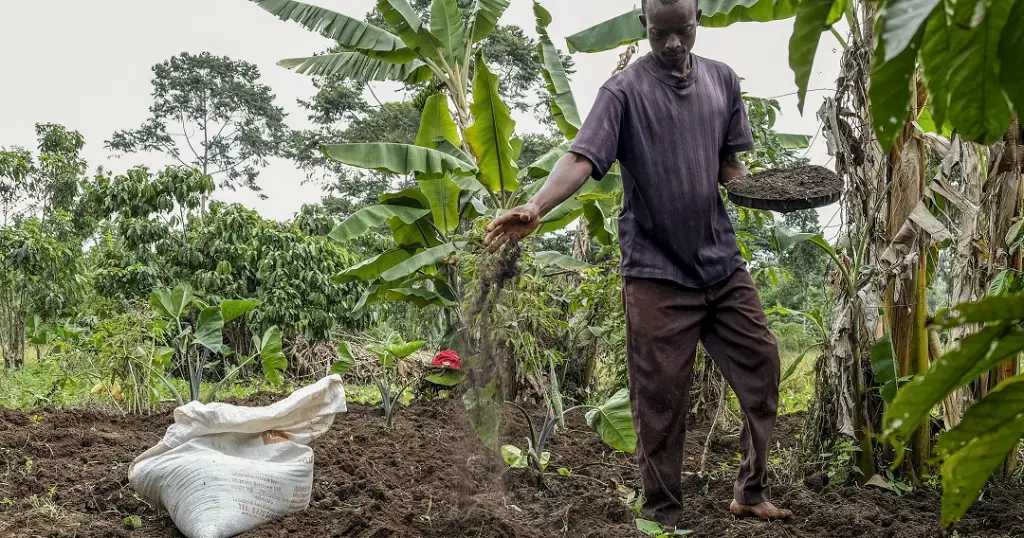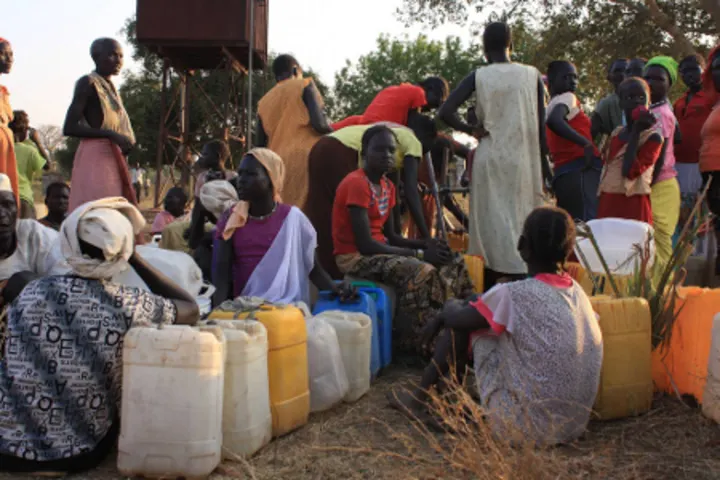
As is customary, Joseph Wagodoma is on his way to his patch of land in Kayunga, central Uganda. If the farmer and his wife are used to tending their bean garden, somehting has changed for the couple. In the past few months, the yhave switched to organic fertilizers. Like many food producers, they are hit by global shortage in crop fertilizers caused by sanctions on Russia, bad weather and cuts in export.
“What inspired me to turn to organic fertilizer was the price of chemical fertilizer, Wagodoma says. I had no other source of money to continue with it. The small harvests we were getting would only cater for basic household needs, so by the start of the planting season, you have no money for fertilizers to prepare your garden with.”
About 15 km away from Joseph’s farm, workers are collecting a organic waste delivery in a Kampala warehouse. The Marula Proteen company spearheads the organic fertilizer initiative.
The company’s CEO and founder Tommie Hooft explains how the process works: “We shred all the waste we ferment it in drums and the fermentation makes the waste soft and then the soft waste is fed to our maggots for a period of 7 to 8 days. The maggots that eat it their enzymes consume it they are breaking down all the waste. and in the essence the larva poo is the fertilizer and it is similar to what happens in nature, in nature some thing dies and it rots and it gets eaten by maggots and then it goes into the soil, so that’s the process we are mimicking.”
A rapidly scaling project
When the idea of ProTeen was born in late 2017 in the brains of the CEO and his advisor Ludivine Berouard, they were preoccupied by the animal feed and sustainability challenges Ugandan farmers faced.
They discovered that “poultry farmers [were] no longer able to access fishmeal, their primary source of poultry feed” because of “overfishing in Lake Victoria which [had led] to reduced availability, high cost and low quality of fishmeal”.
According to Food and Agriculture Organization, Russia stood as the world’s top exporter of nitrogen fertilizers, the second leading supplier of potassium fertilizers and the third largest exporter of phosphorous fertilizers. The consequences of the Russia-Ukraine conflict have turned the tables and ProTeen’s mission has become more necessary as ever.
“30 to 40 % of the total chemical fertilizer available isn’t there anymore and Europe needs it, Brazil needs it, the U.S. needs it, Tommie Hooft says. It is going to places other than Uganda other than Africa. So in our case we don’t just have the opportunity to sell organic fertilizer we also have an opportunity to teach farmers how to use organic and start managing their farms in a more organic way.”
Marula Proteen has also partenered with residents who farm the short-lived but fertile insect. The company provides farmers with 5-day-old larvae that they rear to generate their own fertilizers.
Muhammad Magezi a worker with Marula Proteen, says since the introduction of the black soldier fly initiative, farming communities are rushing to adopt the method. “We are receiving a lot of positive feedback from our farmers because in the beginning before the introduction of this technology they used to use synthetic fertilizers which are more expensive on market and BSF black soldier fly rearing provides a cheaper alternative“, Magezi reveals.
Marula Proteen prides itseft of providing a clean and safe fertilizer which can improve the soil.
Larvae farming programs exist in countries including Nigeria and Kenya.













